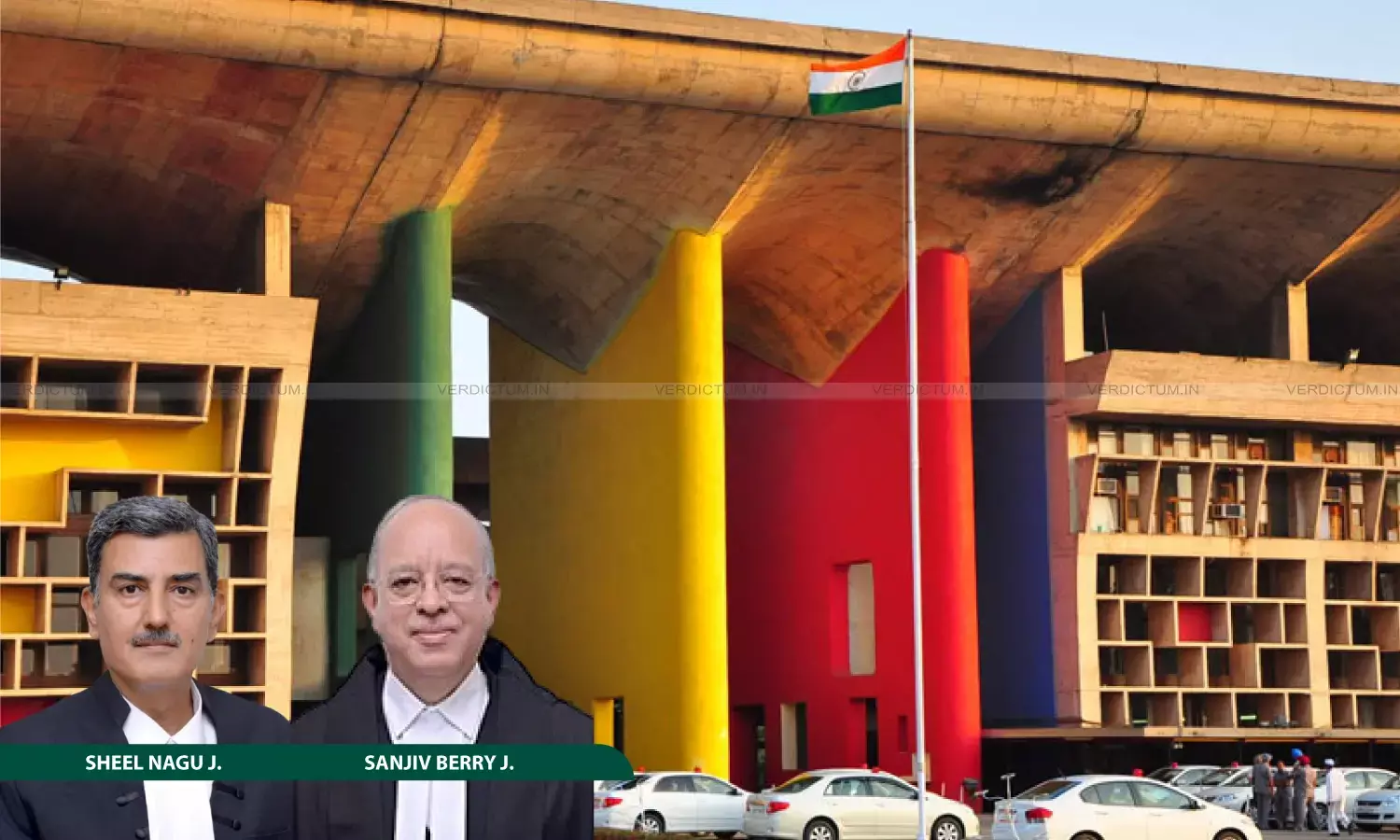50% Minimum Marks Requirement In Superior Judicial Service Examinations Valid And In Line With Rules: Punjab & Haryana High Court
The Punjab & Haryana High Court observed that such conditions were neither arbitrary nor beyond the scope of the governing Rules, but rather essential to secure the best available talent for the administration of Justice.

Chief Justice Sheel Nagu, Justice Sanjeev Berry, Punjab & Haryana High Court
The Punjab and Haryana High Court has held that the prescription of 50% “minimum marks qualification” in the Superior Judicial Services recruitment is neither arbitrary nor contrary to the statutory rules, but rather in consonance with the constitutional scheme to secure the best available talent for judicial office.
The High Court was hearing a petition filed by a candidate, who had appeared in the competitive examinations for both Punjab and Haryana, arguing that the requirement of 50% aggregate marks was arbitrary and not provided in the Haryana Superior Judicial Service Rules, 2007 and Punjab Superior Judicial Service Rules, 2007.
The Division Bench comprising Chief Justice Sheel Nagu and Justice Sanjiv Berry dismissed the petition stating: “The perusal of main clause in the notifications in the light of the respective Rules referred above would show that said conditions of minimum marks qualification imposed under Clause 8.4 of the respective impugned notifications is not at all arbitrary in nature but is in consonance with the Rule 7 of Haryana Superior Judicial Service Rules, 2007 and Rule 11 of Punjab Superior Judicial Service Rules, 2007 respectively.”
Senior Advocate Aashish Chopra represented the petitioner. Senior Advocate Munisha Gandhi appeared for the High Court.
Background
The petitioner contended that he had secured the 40% cut-off in the written examination. However, he was denied selection on the grounds that he had failed to achieve 50% marks in the aggregate of written and viva-voce as required under Clause 8.4.
He argued that neither Rule 7 of the Haryana Rules nor Rule 11 of the Punjab Rules explicitly provided for such a “minimum marks qualification,” and therefore the High Court had exceeded its powers by imposing it as a condition for final selection.
Court’s Observations
The Punjab & Haryana High Court examined Clause 8.4, which required candidates to obtain 40% in each paper to qualify for viva-voce, and clarified that securing 40% did not confer an automatic right to the candidates, as the High Court retained discretion to shortlist candidates up to three times the vacancies for viva-voce.
The Court found the scheme to be fully aligned with the Superior Judicial Service Rules, holding: “It is evident that the High Court by laying down the syllabus and format of examination, specified the scheme thereof by inserting the impugned Clauses in the notifications, has not done anything violative of the basic Rules but the same has been done in exercise of its powers in the light of the Constitutional Scheme so that the best available talent can be selected for performance of the duties as a Member of Superior Judicial Services.”
Addressing the argument that the Superior Judicial Service Rules did not expressly provide for prescribing minimum marks, the Bench clarified that the High Court was well within its powers to introduce such conditions. It was observed that “…executive instructions can always supplement the Rules which may not deal with every aspect of a matter. Even assuming that Rule 7 did not prescribe any particular minimum, it was open to the High Court to supplement the rule with a view to effectively implement the same by prescribing relevant standards in the advertisement for selection.”
The Court also drew upon Dr Kavita Kamboj vs. High Court of Punjab and Haryana and Others (2024), reiterating that once a candidate participates in the process, he cannot later challenge it after being unsuccessful.
The Court further noted that the petitioner had earlier approached the Supreme Court against the same selection process, and the apex court had dismissed his writ petition along with others in October 2024. Therefore, he was estopped from challenging the notifications again.
Conclusion
Dismissing the writ petition, the Bench concluded that no illegality or arbitrariness could be attributed to the High Court’s decision to impose minimum qualifying marks in written and viva-voce, stating that “…it is open to the High Court to prescribe the criteria including cut off marks and ‘minimum marks qualification’ as has been envisaged in clause 8.4 of the impugned notifications to assess the merit and suitability of the candidates to be appointed in the Superior Judicial Services to perform the sacrosanct duties of Judicial Officer.”
Accordingly, the writ petition was dismissed as being devoid of any merit and the pending miscellaneous applications were disposed of.
Cause Title: Rushil Jindal Vs Punjab and Haryana High Court and Others (Neutral Citation: 2025:PHHC:130653-DB)
Appearances
Petitioner: Senior Advocate Aashish Chopra, with Advocates Arav Gupta, Advocate and Yash Pal
Respondents: Senior Advocate Munisha Gandhi with Advocates Shubreet Kaur Saron and Manveen Narang


